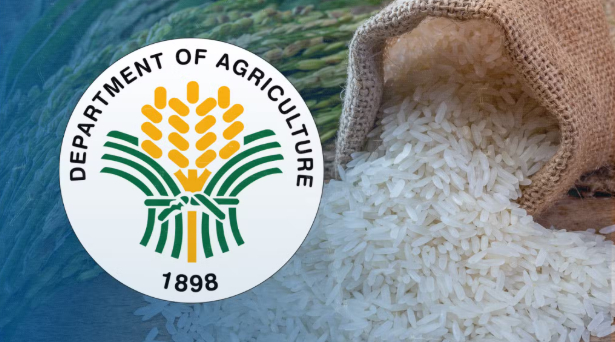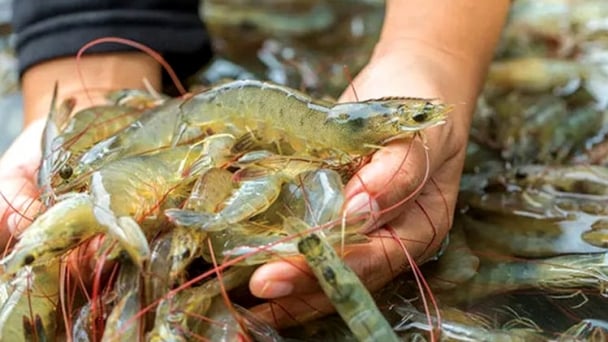May 24, 2025 | 04:59 GMT +7
May 24, 2025 | 04:59 GMT +7
Hotline: 0913.378.918
May 24, 2025 | 04:59 GMT +7
Hotline: 0913.378.918

Should traders refuse to follow the new regulations, their permits for rice importation will be withheld. Photo: inquirer.
The move of the Department of Agriculture (DA, the Philippines) to remove brand labels and premium classifications on imported rice is a “shallow attempt” at addressing price manipulation and will only “deceive” consumers, two groups have claimed.
Cathy Estavillo, spokesperson for rice watch group Bantay Bigas, described the measure as “antifarmer” as it would allow imported rice brands to masquerade as local products.
Compared to local rice, she pointed out that imported grains were inferior in quality.
“This is deception toward the consumers because they will not know where the rice they will be consuming is coming from and this will have an effect on their health, nutrition and family,” she argued.
Agriculture Secretary Francisco Tiu Laurel Jr. last month announced the DA’s decision to remove brand labels on imported rice.
He said that after conducting market visits, the DA noted that some retailers and traders were using branded imports to “confuse” consumers and justify the high prices of rice. Locally produced rice will be exempt from these rules.
The DA chief also ordered the removal of labels such as “premium” and “special” on imported rice, which are likewise being used to justify high rice prices.
Should traders refuse to follow the new regulations, their permits for rice importation will be withheld.
For the farmers’ group Kilusang Magbubukid ng Pilipinas (KMP), however, the measure will not address price manipulation as it fails to solve the “long-standing issues” affecting the rice industry.
“Removing rice labels will not bring down prices or benefit consumers,” said KMP chair Danilo Ramos. “It is a desperate measure that does nothing to address hoarding, profiteering, and the broken promise of lowering rice prices to P20 per kilo.”
According to KMP, the DA has failed to effectively regulate and monitor the rice supply chain in the country with its “inability to crack down on rice cartels.”
“Instead of taking decisive actions against these exploitative practices, the DA opts for superficial and band-aid solutions that do not address the root of the problem,” the group’s statement read.
This was echoed by Estavillo, who reiterated that the removal of labels on imported rice will not solve the issue of price manipulation.
“Instead of removing brand labels, we call on the government to junk the rice liberalization law and support the local production of rice as well as the livelihoods of farmers. This will help us achieve national food security and self-sufficiency, and will lower the prices of rice,” Estavillo pointed out.
KMP also expressed concern over the reported closure of more than 1,000 small-scale rice and corn mills across the country, saying that it highlighted the “devastating” impact of the government’s liberal grains import rules.
“The government’s policies have made small-scale rice and corn millers collateral damage in its relentless push for liberalization,” Ramos noted. “These mill closures are not just statistics. They represent livelihoods lost and communities abandoned in favor of foreign grain suppliers and importers.”
A report by the Philippine Statistics Authority (PSA) released last Dec. 28 showed a 6.3-percent decline in the number of barangay across the country that had rice and corn mills to 15,436 in 2023 from 16,476 in 2013.
KMP said in a statement that “since the implementation of the rice liberalization law [in 2019], local millers have struggled to compete with larger corporate players that dominate the market and dictate unfair buying prices.”
The rice liberalization law, or Republic Act No. 11203, replaced the quantitative restrictions on rice imports with tariffs. By allowing more private traders to participate in importing rice, the law aims to lower domestic rice prices so that it will be accessible to more Filipinos.
KMP, however, criticized the government’s prioritization of rice imports over strengthening local agricultural production, noting that rice import dependency rose to 23 percent in 2022 from 8.1 percent in 2012, based on data from the PSA.
This dependency was “exacerbated” by President Marcos’ decision to reduce tariffs on rice imports to 15 percent from 35 percent since July 8 last year.
“Such policies have enabled imported grains to flood the market, siphoning away the demand for locally produced palay and corn while putting immense pressure on small farmers and millers,” KMP argued.
inquirer

(VAN) WWF, GIZ, IUCN, UNDP call for biodiversity conservation and sustainable development must be regarded as a unity in strategies for a green future.

(VAN) On celebration of International Day for Biological Diversity, Deputy Minister Nguyen Quoc Tri called for practical actions to address nature and biodiversity conservation.

(VAN) Dr. Hoang Thi Thanh Nhan – Deputy Director of the Nature and Biodiversity Conservation Agency – highlighted this on the International Day for Biological Diversity, May 22, 2025.
![Ho Chi Minh city adapts to climate change: [2] Accelerating action](https://t.ex-cdn.com/nongnghiepmoitruong.vn/608w/files/chiqk/2025/05/22/4024-4220-bien-doi-khi-hau-1-100626_766.jpg)
(VAN) Clearly recognizing the challenges posed by climate change, Ho Chi Minh city has swiftly shaped its policies and implemented practical solutions to adapt.

(VAN) Rice straw is no longer just a discarded byproduct, but it is becoming a green resource that helps farmers in the Mekong Delta reduce emissions and promote circular, sustainable agriculture.

(VAN) Other Effective Area-based Conservation Measures (OECMs) are solutions that contribute effectively to achieving the goals of the Kunming–Montreal Global Biodiversity Framework.

(VAN) A study assessing the carbon footprint of whiteleg shrimp farming in China shows the potential for carbon emission reduction through the use of renewable energy.